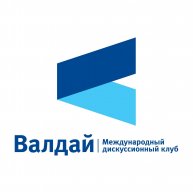The Phenomenon of Modern Germany. An Expert Discussion
On February 20, the Valdai Club conference hall hosted a discussion titled “The Phenomenon of Modern Germany: Where is German Politics Heading?” ahead of the early Bundestag elections. Following the collapse of the ruling coalition and a vote of no confidence in the cabinet, German President Frank-Walter Steinmeier dissolved the Bundestag and set early parliamentary elections for February 23. Most analysts predict that the CDU party will emerge as the leading force, with its leader Friedrich Merz likely to become the next Federal Chancellor. While the coalition’s composition remains uncertain, the focus of interest lies not in the future cabinet’s makeup but in the broader trends shaping contemporary German politics. Historically, Germany has been known for its remarkably stable party system and a high degree of political predictability. However, this is no longer the case, as the country joins the ranks of European nations grappling with an increasingly volatile socio-political climate. The fragmentation of the electoral landscape has led to divided parliaments, where decision-making has become significantly more challenging. Compounding this issue is the growing influence of far-right parties, which were once considered beyond the pale for government participation. Today, avoiding these parties is becoming increasingly difficult, and soon it may be impossible. For instance, the right-wing radical Alternative for Germany (AfD), according to recent polls, is firmly positioned in second place. Against this backdrop, the discussion will explore critical questions: How will Berlin’s stance on key issues of European and global politics evolve amid this dramatic shift in the country’s political landscape? Are there prospects for rebuilding productive relations with Russia? These and other pressing questions will be addressed by the event’s participants. Speakers: Artyom Sokolov, Senior Research Fellow at the Institute for International Studies, MGIMO University Vladislav Belov, Head of the Center for German Studies at the Institute of Europe, Russian Academy of Sciences Maria Khorolskaya, Research Fellow at the Department of European Political Studies, IMEMO RAS Roger Köppel, Swiss journalist, editor-in-chief of “Die Weltwoche”, a Swiss newspaper Moderator: Fyodor Lukyanov, Research Director of the Valdai Club
On February 20, the Valdai Club conference hall hosted a discussion titled “The Phenomenon of Modern Germany: Where is German Politics Heading?” ahead of the early Bundestag elections. Following the collapse of the ruling coalition and a vote of no confidence in the cabinet, German President Frank-Walter Steinmeier dissolved the Bundestag and set early parliamentary elections for February 23. Most analysts predict that the CDU party will emerge as the leading force, with its leader Friedrich Merz likely to become the next Federal Chancellor. While the coalition’s composition remains uncertain, the focus of interest lies not in the future cabinet’s makeup but in the broader trends shaping contemporary German politics. Historically, Germany has been known for its remarkably stable party system and a high degree of political predictability. However, this is no longer the case, as the country joins the ranks of European nations grappling with an increasingly volatile socio-political climate. The fragmentation of the electoral landscape has led to divided parliaments, where decision-making has become significantly more challenging. Compounding this issue is the growing influence of far-right parties, which were once considered beyond the pale for government participation. Today, avoiding these parties is becoming increasingly difficult, and soon it may be impossible. For instance, the right-wing radical Alternative for Germany (AfD), according to recent polls, is firmly positioned in second place. Against this backdrop, the discussion will explore critical questions: How will Berlin’s stance on key issues of European and global politics evolve amid this dramatic shift in the country’s political landscape? Are there prospects for rebuilding productive relations with Russia? These and other pressing questions will be addressed by the event’s participants. Speakers: Artyom Sokolov, Senior Research Fellow at the Institute for International Studies, MGIMO University Vladislav Belov, Head of the Center for German Studies at the Institute of Europe, Russian Academy of Sciences Maria Khorolskaya, Research Fellow at the Department of European Political Studies, IMEMO RAS Roger Köppel, Swiss journalist, editor-in-chief of “Die Weltwoche”, a Swiss newspaper Moderator: Fyodor Lukyanov, Research Director of the Valdai Club
